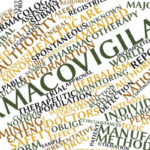What qid Medical Abbreviation Means?

According to historical records, medical language began with the Greeks and the Romans. The earliest writings for western medicine are the Hippocratic collections from the 5th and 4th centuries bc. Those are the earliest sources of western medical terminology period. They are quite comprehensive and cover all the aspects of the medicine known at that time.
From there, the Romans adopted Greek medicine, and with it, Greek medical terminology. According to the Journal of the Royal Society of Medicine (JRSM), we use still use many of those terms for diseases and their symptoms including diarrhoea (throughflow) and dyspnoea (bad breathing).
Today, new medical terminology comes from English, as it has become the language of choice for medical journals and international conferences. The JRSM says “medical doctors have chosen a single language for international communications” and as a result, we have entered the era of “medical English”. New medical terms no longer have their root in Greek or Latin; rather they come from everyday English.
What qid Medical Abbreviation Means?
The medical abbreviation q.i.d. (or qid) seen on a prescription stands for 4 times a day (from the Latin quater in die). This abbreviation can sometimes be written without a period in capital letters as “QID”.
QID: Four times a day. QHS: Before bed. Q4H: Every 4 hours. Q6H: Every 6 hours.
Doctors and other health care professionals commonly use a list of abbreviations, acronyms, and other medical terminology as a reference to rapidly search and accurately record information about, and give instructions to their patients.
What questions should I ask my doctor or pharmacist about my medications?
Beyond what a prescription means, there are some important questions you should ask your doctor or pharmacist when getting your medications. They include:
What is the name of my medication?
It is important to know the names and intended use of all your medications. If you see more than one physician, you should always tell your doctors about other medications you are taking, including non-prescription drugs, herbal remedies, teas, dietary supplements, vitamins, and minerals. This will ensure that the medication you take, both prescription and nonprescription, is appropriate for your condition.
What is the medication supposed to do?
Some medications, such as antibiotics, are used to cure an illness. Others, such as pain medications, are used to control the symptoms. It is good to know what to expect from your medication, so that you have a realistic idea of what it can do for you.
How should I use the medication?
Taking your medication correctly is very important so that it can give you correct therapeutic effect. Some medicines are known to interact with alcohol or food, resulting in an increased or decreased effect of the drug. In some instances, the interaction may be harmful. Also, some medications must be used at the same times every day to be effective.
How long will I need to use the medication?
Some medications are used for the short term, others for a lifetime. Knowing how long you will need to stay on a medication can help you prepare yourself for a lifestyle change, if necessary.
What are the side effects of this medication and what should I do if they happen?
All medicines can cause side effects, but they are not necessarily serious. That’s why it’s important to ask your pharmacist what to expect from your prescription. Even if there is a long list of potential side effects on the pharmacy prescription information, it’s better to ask your pharmacist about the most frequently reported adverse effects of a medication. Before you decide to stop taking a medication because of side effects, ask your pharmacist if there are any ways to combat them.



